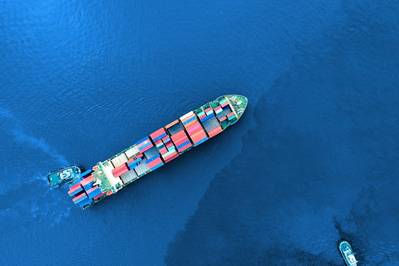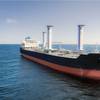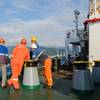VTT Studying Bio- and Waste-based Oils for Ships
Researchers looking for an ecologically and economically sustainable way to replace fossil fuels are exploring how suitable fuel oils made from biomass and waste plastics are for power plants and ship diesel engines.
Internal-combustion engine power plants use natural gas or heavy fuel oil in diesel engines. In order for large diesel engines to be environmentally sustainable both on land and at sea, it is necessary to find bio- and waste-based alternatives to fossil fuels. These will be identified and evaluated in the three-year BioFlex project coordinated by Finland's VTT.
“Our goal is to find the most ecologically and economically sustainable way to replace fossil heavy fuel oil in ship and power plant diesel engines. We compare different methods of industrially producing fuel oils from, for example, waste plastics or biomass, such as harvest residues from forestry and agriculture. We are also conducting experiments to examine the suitability of the oils for applications,” says Senior Principal Scientist Anja Oasmaa from VTT.
In addition to seeking a sustainable solution for the production of load-following capacity, the project also aims to support the objective of the International Maritime Organization (IMO) to halve greenhouse gas emissions from marine traffic by 2050.
In theory, bio- or waste-based fuel oil could be identical to fossil fuel oil in chemical composition. In practice, however, the objective is a similar oil that does not require significant modifications to diesel engines when used. It is also essential that the oil keeps well in storage, mixes with fossil oils and keeps sulphur, nitrogen and particulate emissions low.
“The use of bio-oils is still limited, mainly for cost and availability reasons, and I expect the project to address these factors. It is very important that the subject is researched together to identify all potential challenges throughout the manufacturing, distribution and consumption chain. Every effort must be made to reduce greenhouse gas emissions, and bio-oils will play a significant role in this battle going forward,” says CTO Ilkka Rytkölä from Auramarine, a supplier of fuel injection systems.
The BioFlex project has a budget of EUR 1.6 million and is co-financed by, along with Business Finland and VTT, the participating companies: fuel oil producers, users and equipment manufacturers. The companies involved include Auramarine, Fortum, Neste, Pohjanmaan Hyötyjätekuljetus, Polartek, St1, Valmet and Wärtsilä.















